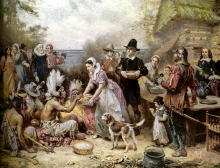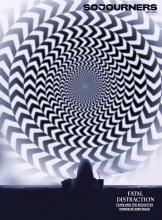Revisionist History

THIS JULY, THE United States turns 247 years old. Independence Day calls to mind a powerful narrative—our nation’s defiant break from the British Empire, explosive population growth and expansion, and ascent as a world power. Yet within this historical movement are rooted many other stories—large and small—that reflect who we really are as a nation. When we hold up a larger mirror, when we view ourselves more completely and take all these stories into account, then we recognize that “our” history is more than a collection of dates, events, and people prioritized by the powerful. History is a complex web of beliefs, practices, and interpretations that exist in the sacred movement of time and space as a spiraling mixture of who we are and who we are becoming.
Sharing a common understanding of history is complicated these days by new words in our lexicon like “fake news” and “alternative facts.” How do we know what to believe and what to reject? Isn’t “revisionist history” a bad thing?
In fact, many historians agree that allhistory is revisionist. Historical interpretation, by its very nature, changes with time and circumstance, requiring new views and fresh analyses. From one perspective, the revision of history in any form means to criticize the past and disrupt commonly held ideas and beliefs. Conversely, the introduction of new, validated, historical information broadens the scope of discourse and deepens its meaning in ways that bring clarity to the past and hope for the future.

I’m not suggesting we not be thankful. But if it were up to me, I’d repeal the official day of Thanksgiving that was sanctioned by Congress because no matter how we want to re-tell or re-write that story, we are marking an event of injustice.
In removing this day, I’d encourage the whole country to express sorrow for such a grave injustice to the Native Indians and create events and various forms of curriculum in parallel. I’d express gratitude and celebration of the story and legacy of the native Indian people. And I’d put into law that ensures reparation for every single descendant of Native Indians. Furthermore, I’d create a fund to guarantee 100% funding to college for any descendants of Native Indians. This is just for starters….
In my opinion, our treatment of the Native Indians is one of the greatest human tragedies and to ignore its story and context may be the pinnacle of historical revisionism.
Like it or not, the far-Right members of the Texas State Board of Education may have already decided what your children will learn about American history.
